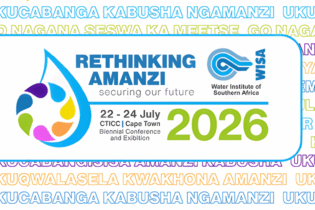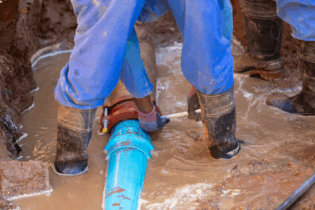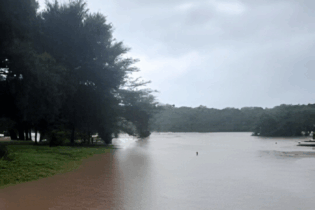 eThekwini Municipality has developed a 10 years water conservation and demand management plan in order to secure a sustainable supply of water for the city.
eThekwini Municipality has developed a 10 years water conservation and demand management plan in order to secure a sustainable supply of water for the city.
Deputy City Manager for Trading Services Philemon Mashoko presented the Water Conservation and Water Demand Management Plan to the Executive Committee on Monday. He outlined the various steps the municipality will be taking until 2027 to ensure a sustainable water supply in the city. This includes the establishment of a first level response team responding to water pipe bursts and leaks in record time.
The plan to ensure the security of water supply covers the following areas:
- Financial sustainability
- Water quality
- Management capacity (talent management, operational resilience, sound governance)
- Water resources (ground water, effluent reuse, dams, sea water and rainwater harvesting)
- Water conservation and water demand management
- Infrastructure stability
According to Mashoko, the plan’s strategic objectives are to improve financial sustainability of the business by protecting and enhancing revenue streams, to optimise the usage of available water resources thereby ensuring security of water supply and to improve on accountability and governance.
The calculated combined annual financial benefit for the Water Conservation Water Demand Management Plan is R1 489 000 000 per annum.
This includes R229 million annual savings from real loss reduction, R1 260 million annual increase in billed revenue from metered consumption, and R38 million from the increase in sewer charges (each implemented over 10 years).
Key objectives
In line with eThekwini’s strategic objectives, eThekwini aims to reduce non-revenue water to less than 20% by 2025/26 and to increase water reuse to 100 Mℓ/day by 2022.
Other broad objectives include reducing annual water demand growth to less than 1% as well as reducing wastage by 25% by 2026.
The city also plans to install meters on all water connections by 2022 and to ensure annual clean audits of its water sector.
Reducing water losses
Mashoko said the city’s approach would be to use the International Water Association water balance to ascertain the components and size of the non-revenue water and to ascertain the geographical zonal distribution of the non-revenue water in the metro and prioritise the zones with the highest percentage and high return on investment.
He outlined new targets by loss type for non-revenue water:
- Real losses, which comprises of bursts, leaks, high pressure and reservoir is currently at 30%. The target is 25% in the next five years and 17% in the next 10 years.
- For apparent losses, which include inaccurate meters, billing errors and illegal connections, the current loss is 10%. The target is 5% in the next five years and 3% by 2027.
- Finally for authorised unbilled consumption which includes unmetered rural areas, unmetered informal, RDP, firefighting and tanker services, the target is 5% in the next five years and 3% in the next 10 years – an improvement from the current loss of 10%.
Further, the municipality will select the appropriate mix of synergistic interventions that will yield maximum gains such as pressure management and pipe replacement, which must be married.
“We will use the lessons learnt in the last ten years and avoid the mistakes made while maximising on the interventions and methodology that yielded good results,” he said.
A two pronged approach to water conservation will be pursued, namely demand reduction from the consumer side and demand reduction from the utility side, Mashoko added.
“There are many issues we will be looking at. Water conservation has not previously been looked at gauging how we conserve water, education and awareness around this as well as by-law enforcement. Targets will be monitored,” said Mashoko.
 eThekwini Municipality has developed a 10 years water conservation and demand management plan in order to secure a sustainable supply of water for the city.
eThekwini Municipality has developed a 10 years water conservation and demand management plan in order to secure a sustainable supply of water for the city.




